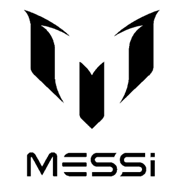
In today’s game, footballers are as much brands as they are competitors. With global visibility and fan engagement at an all-time high, an increasing number of these athletes are transforming their fame into commercial ventures. At the heart of this transformation lies a powerful legal mechanism: trade mark protection.
The following striking examples illustrate how trade marks serve as vital assets for those seeking to build, protect, and capitalise on their name and brand. This article also considers the potential risks associated with failing to proactively secure a comprehensive trade mark portfolio.
Why Trade Mark Protection Matters
Whilst social media and news outlets may dismiss these moves as vanity projects, in reality, securing trade mark rights is a wise business strategy that affords several significant benefits, including:
- Control Over Your Brand: Registered trade marks grant individuals and businesses exclusive rights to use their name, image, or other brand elements, helping maintain control over how they are represented in the marketplace.
- Legal protection and Brand Enforcement: Trade mark ownership provides strong legal foundation to act against unauthorised use, counterfeiting, or third parties seeking to profit from your brand - safeguarding both reputation and commercial interests.
- Commercial opportunities: Registered trade marks can be licensed, merchandised, or used to build partnerships - turning these legal rights into tangible business assets and new revenue streams.
Importantly, these benefits are not limited to world-famous footballers; they apply to any trade mark holders, regardless of their public profile or sporting talent.
Cold Moves, Smart Marks: Cole Palmer’s Off-Pitch Wins
Despite a challenging, injury-ridden start to the current football season, Cole Palmer has recently made strategic off-pitch moves by securing multiple trade mark registrations in both the UK and EU. These cover:
- His Name: UK00004129004 and 019120392
- His Nickname ‘COLD PALMER’ : UK00004129017 and 019120465
- His Autograph: UK00004129092 and 019120543
- His Face: UK00004129121
- His Signature ‘Cold’ Celebration: UK00004129108 and 019120480 (registered as motion marks)
Interestingly, the EU motion mark’s description comprises of a video of Palmer performing his ‘shivering’ move in a plain black t-shirt. This is presumably a tactical approach, ensuring his celebration remains protected even if Palmer transfers to another football club during his career.

(link to video here)
To further enhance the scope of protection, these registrations also list a wide array of goods and services - from cakes to mopeds. This breadth demonstrates the diverse commercial opportunities available to athletes who actively manage their intellectual property rights, but also represents something of a defensive strategy too (notwithstanding compliance with the recent Skykick decision), ensuring that others cannot use the same or similar marks on various items.
One standout inclusion in the EU registration of Palmer’s goal celebration is the inclusion of Class 9 goods such as “downloadable computer software; downloadable computer games; downloadable computer programmes; video games.” This move seemingly seeks to ensure that video games like EA Sports’ ‘FC’ series (formerly ‘FIFA’) may only use Palmer’s iconic goal celebration with his consent - typically secured through a licensing agreement. As a result, a momentary on-pitch celebration is potentially transformed into a revenue stream through trade mark protection.
Nevertheless, registering a wide scope of goods and services brings responsibilities. Under EU and UK law, a trade mark can be challenged by third parties if it is not genuinely used for the registered goods and/or services within five years, or if it is felt that the wide range of goods and services are not accompanied by a bona fide interest in them. Strategic breadth, therefore, must be balanced by genuine commercial activity.
The expansive scope of protection of Palmer’s application for ‘COLE PALMER’ attracted opposition in August 2025 from Château Palmer, a French vineyard founded in 1814 and known for its ‘Palmer’ wines. The opposition centred on Palmer’s application including “wines” as part of their goods in Class 33. To resolve the dispute, Palmer amended his application in September 2025, removing wine and including the phrase “none of the aforesaid including wines” in Class 33. With the opposition period having ended on 29 October 2025, the mark is now registered – albeit with Palmer having to accept defeat for at least some portion of the filing.
Following Proven Paths
Palmer is following a well-trodden path taken by some of the world’s most successful footballers, who recognise the value of trade mark protection for their names, branding, and even their signature goal celebrations. Notable examples include:
| NAME | BRANDING | GOAL CELEBRATION |
|
“DAVID BECKHAM”
David Beckham secured EU and UK trade marks for his name in 2002 (EU 001796721 and UK00901796721). |
Cristiano Ronaldo registered his ‘CR7’ brand’s logo at EUIPO in 2009 (EU 006963292). |
Kylian Mbappé registered an EU figurative mark for his cross-arms celebration pose in 2018 (EU 017157355). |
While Cole Palmer’s proactive trade mark approach aligns with the strategies of many high-profile figures, not all footballers have demonstrated such foresight. The experiences of Lionel Messi and Erling Haaland illustrate the pitfalls associated with delaying trade mark protection and the importance of timely action.
Erling Haaland
Despite Haaland’s rapid ascent to international stardom following his hat-trick on his Champions League debut in 2019, he did not seek trade mark protection for his name until after he became involved in a legal dispute.
In 2022, a third party filed an EU trade mark application for ‘HAALAND’ (18791282). Although Haaland eventually succeeded in invalidating the application on the grounds of bad faith in September 2025, arguing that the applicant was intentionally seeking to benefit from the commercial appeal of his name, the process was protracted, complex, and expensive. Had Haaland registered his name earlier, he could have avoided the heavy evidential burden of proving bad faith and instead relied on the straightforward argument of prior rights, thereby saving considerable time and resources.
Unsurprisingly, he has since secured Norwegian and International registrations for his name (“ERLING HAALAND”) (202302730 and 1757402) and his autograph (202302732 and 1757298) in 2023.
Lionel Messi
Messi’s rise to global prominence began in the 2006 season, when he established himself as a FC Barcelona regular and famously netted a hat-trick against Real Madrid. In 2011, he sought to register an EU figurative mark featuring his name, ‘MESSI’ (see below). This move was met with opposition from a Spanish cycling company that owned the EU word mark ‘MASSI’ (000414086), resulting in a nine-year legal dispute.

Ultimately, Messi succeeded: both the General Court (in 2018) and the ECJ (in 2020) found that his extraordinary global reputation was a decisive factor, conceptually distinguishing his mark from the opponent’s and outweighing any visual or phonetic similarities.
However, this success was not without its drawbacks. Messi faced lengthy proceedings involving multiple appeals, and ongoing uncertainty as courts delivered conflicting judgments at different stages.
Crucially, Messi’s eventual outcome was the exception, not the rule; such a reactive approach is a rare luxury, available only to those with unrivalled global recognition. For the vast majority, relying solely on the reputation of one’s name or brand, rather than an earlier registration, is a risky gamble that can lead to complex, lengthy legal disputes and potentially crippling costs.
When Should You Start Protecting Your Brand?
The cases of Haaland and Messi serve as powerful reminders of the importance of registering trade marks early and comprehensively. Proactive action to secure intellectual property rights is not just prudent; it is essential for avoiding lengthy disputes, preserving resources, and safeguarding one’s brand effectively.
Both the UK and EU are governed by a first-to-file rule, meaning the first party to file an application generally has priority rights over anyone who files an identical or confusingly similar application afterwards. As such, swift trade mark registration is fundamental to achieving solid brand protection.
This is particularly relevant in the world of football and sport, where careers can be short-lived and injuries are common and may abruptly end playing days. By obtaining trade mark rights early, athletes can extend their commercial opportunities and revenue streams well beyond the short period of their sporting prime.
As discussed above, registered trade marks provide clear, enforceable rights, making it significantly easier to stop others from using identical or similar marks. In contrast, relying on unregistered rights often means pursuing complex and costly legal claims - such as bad faith or passing off - which require substantial evidence and often carry uncertain outcomes.
Whether you are an athlete, celebrity, entrepreneur, or brand owner, a proactive IP strategy can be a real game-changer between defending your brand or losing control of it.
Find Out More
If you are interested in learning more about effectively protecting your brand, our trade mark team would be glad to assist you.
This blog was co-authored by Paris Ware-Lane and Andy King.
Paris Ware-Lane
Paris is a trainee trade mark attorney and a member of our trade mark team. Paris graduated in 2024 with a BA in French and Classics (Latin and Ancient Greek) from the University of Edinburgh. She also holds a MA in Law (Conversion) from the University of Law. Her dissertation critically evaluated the UK courts' assessment of single-colour trade marks. Paris joined Mewburn Ellis LLP as a Trainee Trade Mark Attorney in 2025.
Email: paris.ware-lane@mewburn.com
Andy is a Head of Trade Marks and member of our Management Board. He is a Partner and Chartered Trade Mark Attorney who handles a wide range of trade mark work, from searches, portfolio reviews and devising filing strategies to prosecution of applications, oppositions, revocation and invalidity actions. Andy has extensive experience representing clients at the UKIPO, EUIPO and WIPO (for international ‘Madrid Protocol’ registrations).
Email: andy.king@mewburn.com
Sign up to our newsletter: Forward - news, insights and features
Our people
Our IP specialists work at all stage of the IP life cycle and provide strategic advice about patent, trade mark and registered designs, as well as any IP-related disputes and legal and commercial requirements.
Our peopleContact Us
We have an easily-accessible office in central London, as well as a number of regional offices throughout the UK and an office in Munich, Germany. We’d love to hear from you, so please get in touch.
Get in touch




